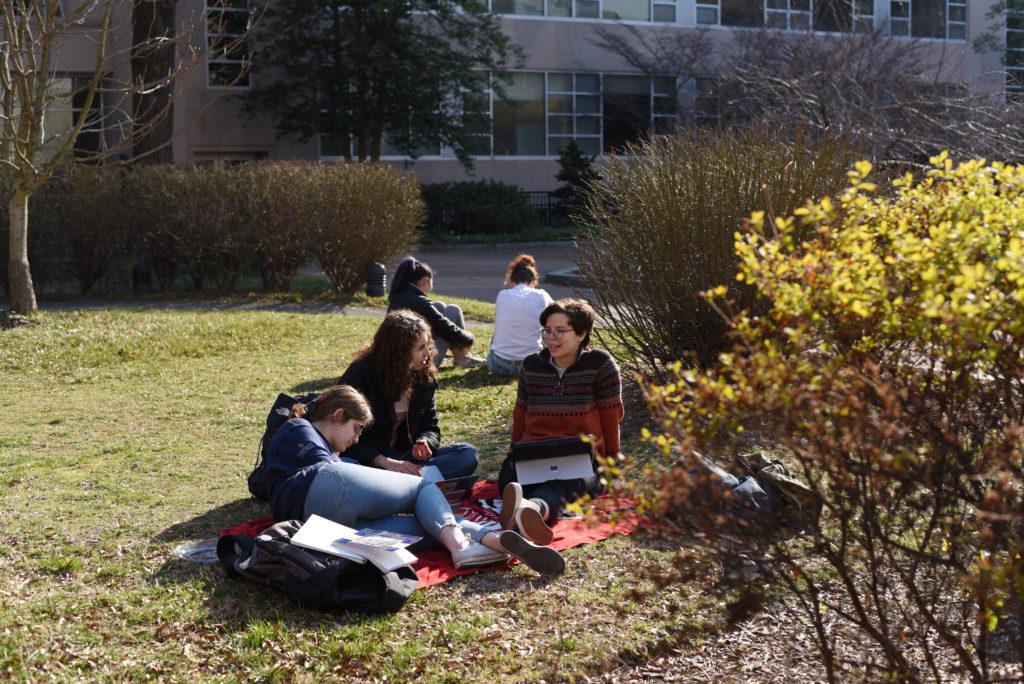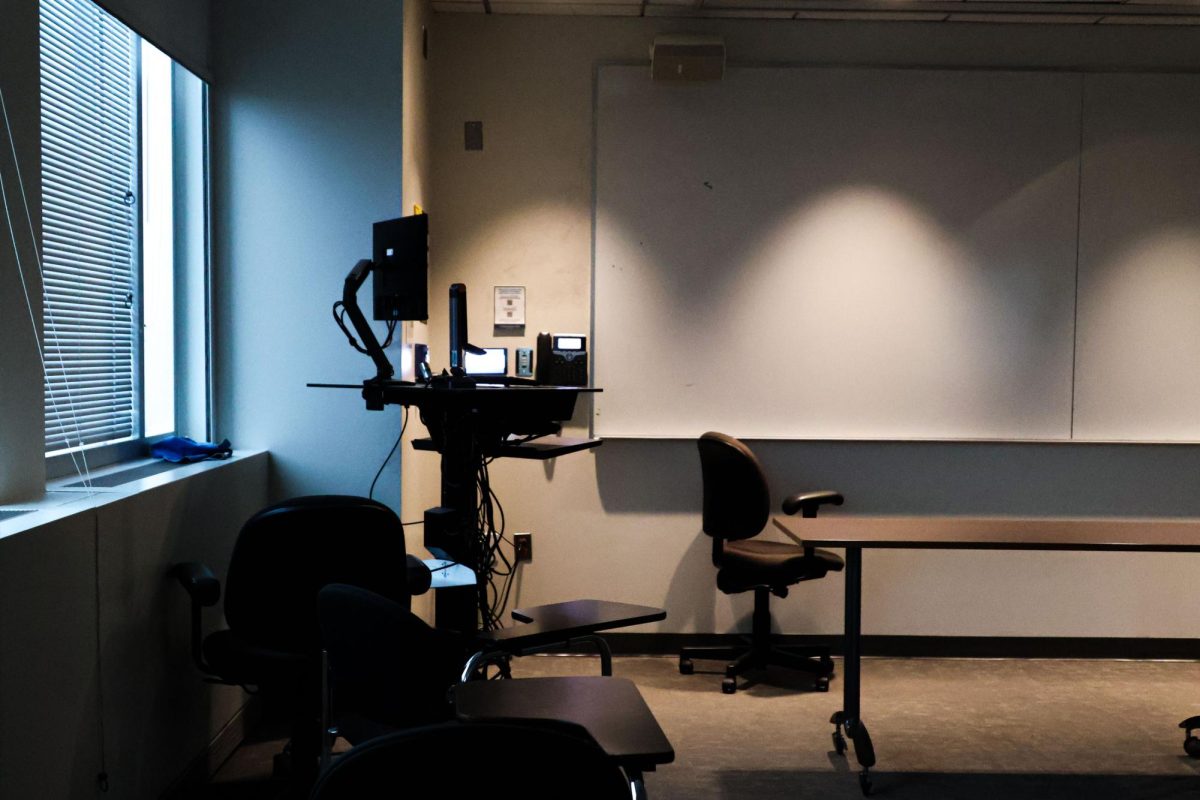The University’s shift to online classes for the semester has left some science and arts professors struggling to replicate hands-on labs and activities.
Faculty and students at GW, like those at more than 130 universities nationwide, will complete the rest of the academic year online to slow the spread of the COVID-19 pandemic, responsible for at least 330 cases in the D.C. region. But the transition online brings unique challenges to classes in the arts and sciences with in-person labs and creative assignments, which have led professors to modify their courses and integrate video submissions, they said.
Faculty have been generally optimistic about the shift to online classes, saying they are collaborating to navigate the technical challenges that occur in online teaching.
Giselle Ruzany, an adjunct professorial lecturer of dance, said she is having students read an anatomy book to help them better understand body movement and improve their technique. She said she will teach exercises that aid proper dance technique, but said she worried that students’ dance skills may atrophy if they lack room to practice.
“They’re in such a beautiful moment in their technical life – they just came out of high school – most of them went to a dance high school,” Ruzany said. “They’re technically impeccable and I’m a little worried that not dancing for a month, they might lose all that they trained their life to do.”
Ruzany said she is having students film 30-second clips of them dancing, which will either be sent just to her or to the whole class for discussion. She added that because dance is centered around community, she is considering ideas like partnering students online to work on their skills together.
“This class in particular was in a very important moment where they were becoming one group, one cast,” Ruzany said. “And I think it’s going to be a challenge to keep that momentum of getting to know each other.”
Matthew Wilson, an associate professor of theatre, said his beginning acting class will have to pivot its focus “drastically” from stage acting – which focuses on live performances – to screen acting – which consists of performing in front of a camera for films – now that the entire semester is online. He said the two “aren’t the same, but they are similar and both valuable.”
“As instructors of performance, we’ll all do what we have to do to ensure that course objectives are still met, even if that means finding new ways to facilitate learning and sharing,” Wilson said. “Obviously, being online isn’t the same as meeting in-person – Netflix isn’t live theater – but we can and will grow as people and actors through any medium.”
He said students are largely doing “actor’s homework” for the next few weeks, including research and preparation for their final performances of the class. He added that the online assignments students face are not without precedent in the acting industry, where videotaped auditions and virtual planning meetings are becoming increasingly commonplace.
“Those of us who have made live performance our life’s work value presence, so I think it’s safe to say that many of us are a little disappointed at not getting to work together in person,” Wilson said. “However, we also know that this is a dangerous time for our communities and that everyone needs to do their part to keep each other safe.”
Hartmut Doebel, an associate professor of biology, said he is optimistic about the new opportunities students will have to study biology in their own home towns by observing local flora and fauna. He said he plans to integrate his lectures with activities and videos to engage students more and maintain their attention.
“The experience one gets by touching and using equipment and material with one’s hands cannot be replaced directly,” he said in an email.
Doebel said this new opportunity for students to study biology at home will be used as an alternative to regular lab assignments that involve dissections or other work that can only be done on campus.
“The educational experience will be different, quite different, but if we do this right, it will open up many new doors, even the courage to explore our global village in heretofore unknown ways,” he said.
Peter Nassar, an adjunct professor of geology, said he will use Blackboard Collaborate to give lectures live and will record his lectures for students in different time zones.
He said all of the hands-on labs required for his course took place prior to spring break, and teaching assistants are adapting the remaining three labs his students have yet to complete to be completed individually. He said TAs will be available via Blackboard to provide assistance, and they will record instructions for students in different time zones.
“Some students feel out of their comfort zone when they take science and math courses, and transitioning to an online format mid-semester likely does not help ease that stress,” Nassar said in an email. “So I hope at least for those students, this allows them to show a side of themselves that might otherwise not have been seen in an intro-level science course.”
Mark Reeves, a professor of physics, said he plans to use Zoom as the primary platform for teaching classes online, with Blackboard Collaborate serving as a backup. He said other professors in the physics department will work together to assess which platform is most effective.
Reeves said his physics classes are not usually fully in lecture form or in lab form, but are taught in a “scale-up” format that integrates the two. In the online format, he said he plans to have his students attend class having already listened to recorded lectures, and he will use class time to answer questions students have and for students to complete online labs and simulations.
“Students will come to class for fewer hours per week, but they will come to class having listened to the lectures, being able to take what was in those lectures and put them into use,” he said.








